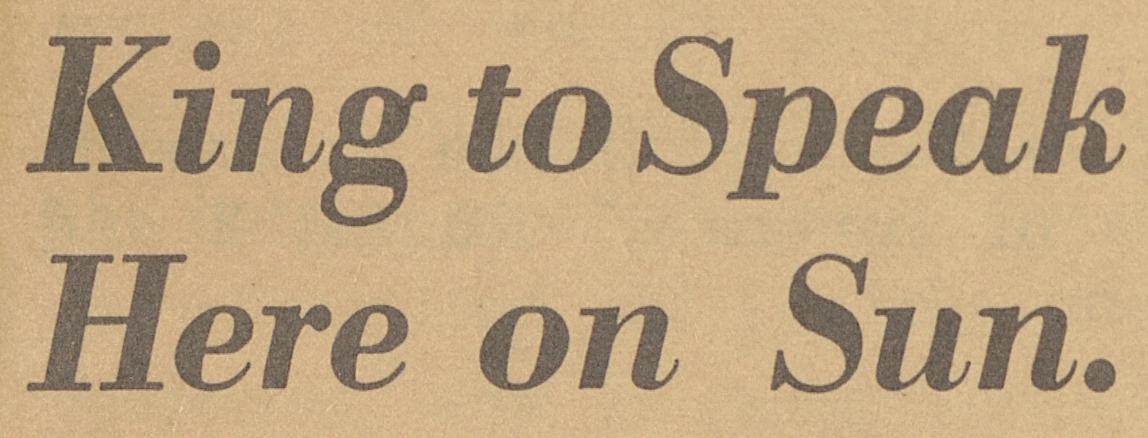Dr. Martin Luther King Jr.'s visit to Raleigh on 31 July 1966, during which he spoke at NC State's Reynolds Coliseum, has intrigued NC State English professor Jason Miller for several years as part of research conducted for his 2020 exhibit "When MLK and the KKK Met in Raleigh". To help further his research, Special Collections staff has combed our collections extensively without finding any documentation -- that is, until now. The newly discovered source is the Wolfpack News, a short-lived student newspaper that published during the summer of 1966 instead of the Technician. We recently digitized the newspaper's five-known editions, which include announcements made prior to Dr. King's visit (such as this one from June 29) and an account of the speech (really, just an editorial reprinted from the Raleigh Times) in the 12 Aug. 1966 issue.
It is interesting that the
13 July 1966 edition announced a discussion planned for after Dr. King's speech. This talk was to be led or moderated by a Dr. Edwards and a Dr. Carnes. There is no further mention of this in any of the newspaper's subsequent issues, and we have not found evidence that it actually did happen. We hope it did. (Dr. Carnes was probably the Rev.
Harvey Larabee Carnes, a sociology doctoral student and instructor at the time who was involved in civil rights activities most of his career as a minister. We have been unable to determine who Dr. Edwards was; NC State had a number of people with that surname in 1966.)
The 1966 MLK visit is another example of how historical research sometimes raises more questions than it answers because of the
"archival silences" or "archival gaps." Other than the
Wolfpack News, there were no notices in official university publications and no mentions in the correspondence of NC State officials. There isn't even an events schedule for Reynolds Coliseum from July 1966. Miller has relied on other sources to learn about, understand, and interpret the meaning of the civil rights leader's visit. While this new discovery doesn't change our understanding of what happened, it is good to know that there is a source after all in the University Archives. As with many archival discoveries, this one was serendipitous, and we hope many more will follow.
If you have questions about our collections or would like to see our materials, please use our
online request form or visit our
homepage. The Special Collections Research Center’s physical reading room is currently open by appointment only. Please contact us at library_specialcollections@ncsu.edu for appointments or any questions. You can also submit a
request to use materials, and we will email you with available appointment times.
